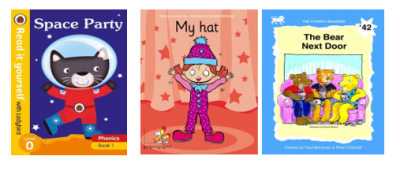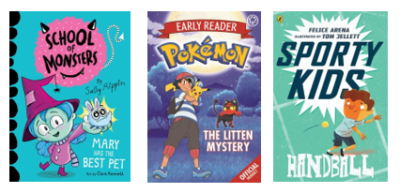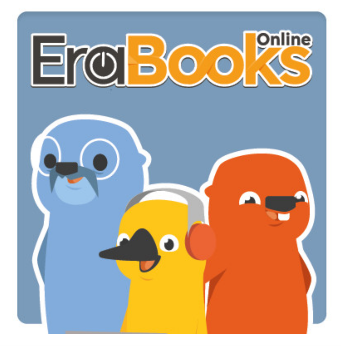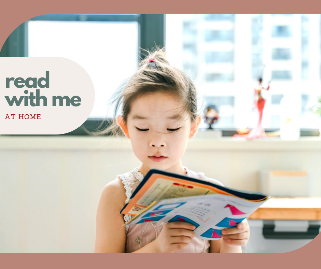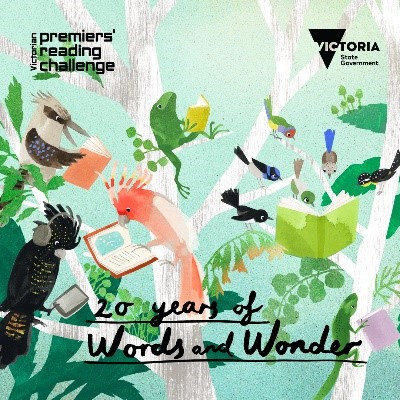Learning to read can be like ‘cracking a code.’ It involves learning how to separate words into speech sounds, linking these sounds to letters and then blending these sounds together to read words. Children are taught the skills and strategies to do this at school, but they will require lots of opportunity to practise at home. Wyndham City Libraries has a large selection of books, resources and programs to support your child in their journey to reading independently and developing a love of books.
Reading together with your child, even when they have begun to read independently, is a great way to encourage a love of reading and it supports key components of reading development such as increasing vocabulary, demonstrating the phonetics (sounds) of words and helping them make meaning of what is read.
For more information on how you can help your child’s reading development:
- Five from Five, Parent Resources
- Reading Rockets, How Do Children Learn to Read
Encourage a love of reading
Many parents express concern that their child does not want to read. The child might say it is boring or too hard even though they loved books and being read to before they started school. Reading becomes one of the many things they are told they have to do.
Research has shown children benefit greatly from parents continuing to read to them throughout primary school. It helps them to further develop their vocabulary and comprehension skills and reminds them that reading is enjoyable.
It is important to allow your child to choose what they read. Many children struggle with reading “traditional” books. To jump start your child’s love of reading, consider books that focus on “edgy” topics, are funny, or include a great deal of action. By tapping into your child’s interests, you are more likely to encourage regular reading habits.
Resources that offer variety and engagement include:
For more suggestions of books for kids, visit our reading lists for inspiration. Other sites include StoryBox Hub for stories read out loud by Australian authors and personalities and LOTE4Kids for books in a variety of languages.
Books for Beginner Readers
Phonics Readers
Phonics readers (also called decodable readers) are written in a way that helps children practise their decoding or ‘sounding out’ skills. Each level introduces new sound-letter relationships and word types, helping your child to improve their reading accuracy and fluency and build their confidence as a reader.
The letter/sounds and high frequency/tricky words contained in each book will typically be on the inside cover or back of the reader. It’s best to match what your child is learning at school, but if you’re unsure you can always borrow a range of readers to find a good starting point and a series that your child enjoys.
Click here to explore our Phonics Readers.
Easy Readers
Easy readers are short chapter books, with large font and spacing, designed to encourage independent reading. The Junior Easy Reader collection at Wyndham City Libraries is identified with a bright yellow sticker.
Click here to explore our Junior Easy Readers.
Online Resources and Programs
Era Books Online
An engaging world of books, games and activities for children to improve their reading, writing and comprehension skills, featuring hundreds of educational
books, exercises and learning guides to support the development of English literacy skills. You can also find a great selection of decodable readers. Android and Apple apps are available or you can use the website. Log in with your library card.
Read With Me
Read With Me is an online program where primary school aged children can practise their reading. During each session our Education Librarians will guide your child's reading and recommend new authors and books for them to try. For children aged 6 – 12 years, or children in Grade Prep – Year 6.
Please note, this is not a tutoring program.
More Information
Victorian Premiers’ Reading Challenge
The Victorian Premier's Reading Challenge runs every year, between March and September. Our libraries have hundreds of books for each year level in primary school.
eBooks count towards the challenge and one-third of the books do not need to be from the Challenge List.
For more information about the rules and how to register, visit the Premiers' Reading Challenge website.
Reading Difficulties
Sometimes it’s hard to learn how to read. Most children respond well to a structured program, but some will continue to struggle for lots of reasons, even with high quality, intensive instruction. Developmental delays, health issues, and other factors can all make reading difficult. People can also have a specific learning disorder that only affects reading development, commonly referred to as ‘Dyslexia'.
Explore these links for information on reading difficulties and resources on how to support your child:
- Department of Education and Training Victoria, Supporting Diverse Learners
- AUSPELD, Understanding Learning Difficulties – A Guide for Parents
- SPELD Victoria, Information for Parents
- Dyslexia SPELD Foundation, Information and Resources
- Australia Dyslexia Association
Research has shown that a good quality, synthetic phonics program with decodable readers is the most effective intervention for children with reading difficulties.
Explore our wide selection of decodable readers, recommended by Speech Pathology Association Australia and Australian SPELD associations.
